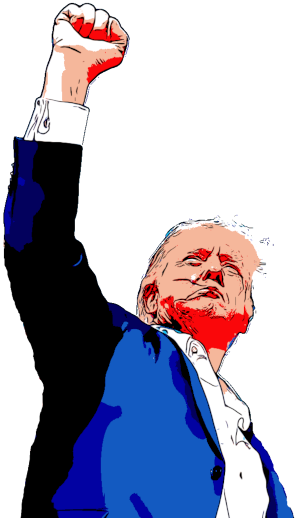Trump Backs Musk's OPM Email
President Donald Trump defends Elon Musk’s controversial OPM email, calling it a ‘pretty ingenious idea’ amidst federal agency resistance.
In a move that has sparked both controversy and confusion within the federal government, President Donald Trump has publicly endorsed a directive from Elon Musk, his deputy and head of the Department of Government Efficiency. This directive, sent via the Office of Personnel Management (OPM), required federal employees to list five accomplishments from the previous week by midnight Monday, with failure to respond considered a resignation. Trump’s support for Musk’s email comes at a time when multiple federal agencies have instructed their employees to disregard the directive, highlighting a significant rift within the administration.
Trump’s Defense of Musk’s Directive
During a joint news conference with French President Emmanuel Macron, Trump described Musk’s email as a ‘pretty ingenious idea.’ He suggested that many employees did not respond because they were working on confidential projects, not because they were ignoring the directive. Trump’s comments come in the wake of widespread resistance from federal agencies, which have criticized Musk’s overreach and questioned the legality of his demands.
Trump’s endorsement of Musk’s directive underscores the president’s commitment to streamlining government operations, a key campaign promise. However, the move has also raised concerns about the autonomy of federal agencies and the potential for mass resignations or layoffs, which could disrupt essential government functions.
Federal Agencies Resist Musk’s Directive
Leaders from over a dozen federal agencies, including the Department of Defense, Department of Homeland Security, and the FBI, have instructed their employees to ignore Musk’s email. Acting Undersecretary of Defense for Personnel and Readiness Darin Selnick emphasized that the Department of Defense would conduct performance reviews according to its own procedures, not Musk’s directive. Similarly, FBI Director Kash Patel advised bureau personnel to pause any response to the email, signaling a broader resistance to Musk’s authority.
This resistance is not merely a bureaucratic disagreement but reflects deeper tensions within the Trump administration. Musk’s role as a ‘special government employee’ has allowed him to implement sweeping changes, including mass layoffs, which have been met with backlash from both within and outside the government. The directive to federal employees is seen by many as an overreach, prompting legal challenges from labor unions and confusion among workers.
Implications for Government Efficiency
Trump’s backing of Musk’s email directive highlights his administration’s focus on government efficiency but also exposes the challenges of implementing such reforms. The president’s praise for Musk’s ‘genius’ in sending the email suggests a willingness to push boundaries to achieve his goals, even if it means clashing with established norms and procedures.
The controversy surrounding Musk’s directive and Trump’s support for it raises questions about the balance of power within the executive branch and the potential impact on federal employees. As the administration navigates these tensions, the outcome will likely have significant implications for the future of government operations and the morale of the federal workforce.
The situation also underscores the complex dynamics of Trump’s second term, where ambitious reforms are met with resistance from entrenched bureaucratic structures. As the president continues to push for efficiency and accountability, the response from federal agencies and the broader government workforce will be crucial in determining the success of these efforts.

